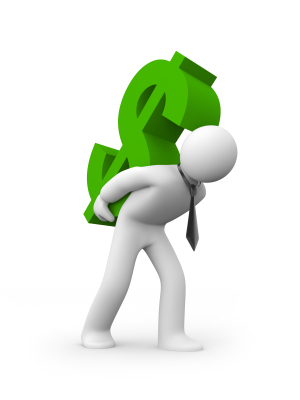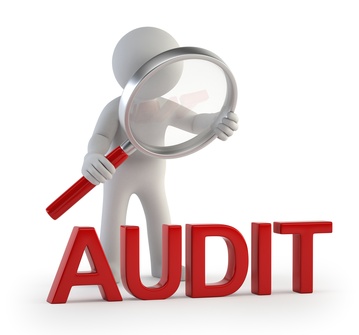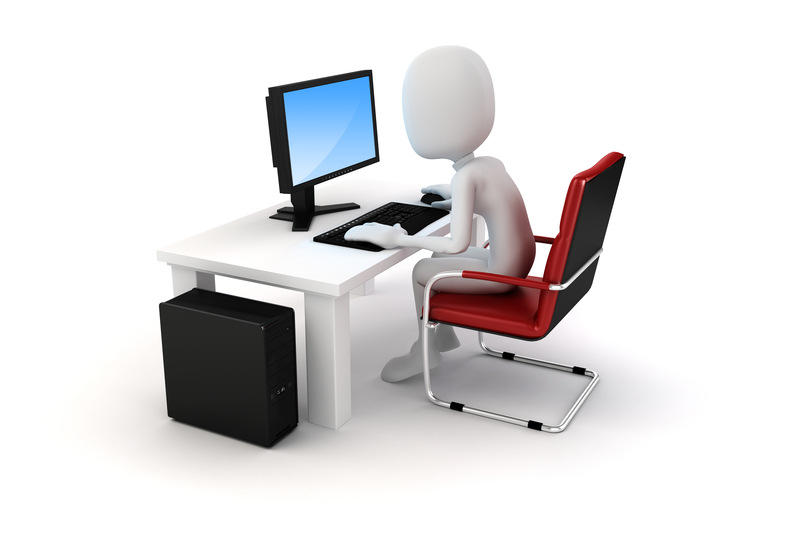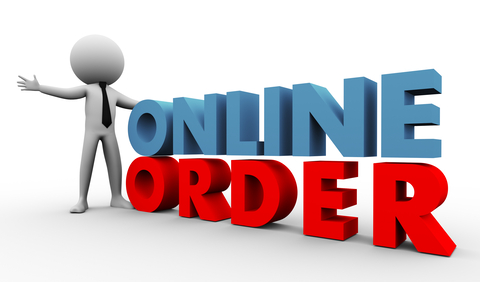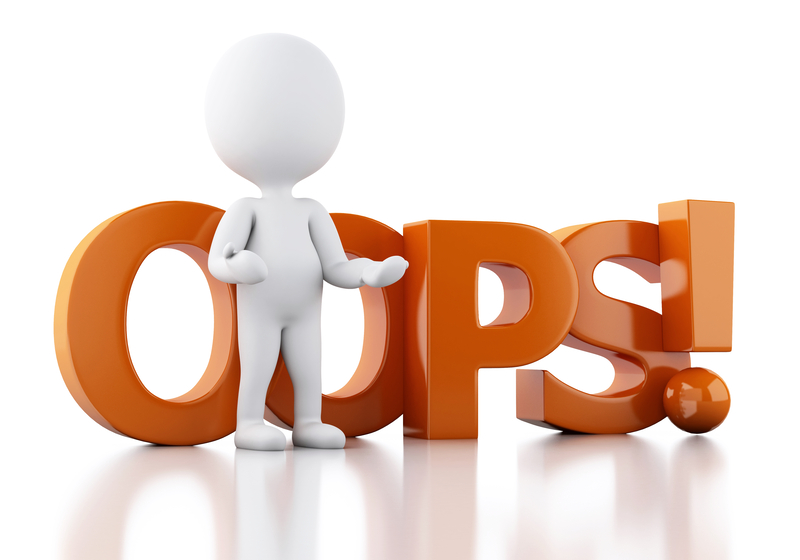- Essential Bookkeeping Habits For Audit Ready Books in Canada
- Canadian Income Tax Compliance
- Home Based Business and Taxes
Home Based Business and Taxes Q&A
By L.Kenway BComm CPB Retired
This is the year you get all your ducks in a row! Start by starting.
Edited June 10, 2024 | Published March 4, 2024 | Originally Published in Bookkeeping-Essentials.com
Small Daily Habits Can Move Mountains
Do just one task today towards meeting your tax compliance obligations. Just one.
 Home based business and taxes in Canada
Home based business and taxes in CanadaAs a small business owner in Canada, home business taxes are something you need to address. In this chat you'll find answers to some commonly asked questions about home business taxes.
Tax planning happens EVERY day throughout the year. Good compliance practices don't happen on any one particular day. They aren't an event; they are a HABIT. By taking the time to learn and know the rules YOU can do all the little things needed to LEGALLY reduce your net taxable income.
Article continues below.
Not what your were looking for? Here are some other articles that may interest you.
Self- Employed Tax Deductions
Learning The Rules
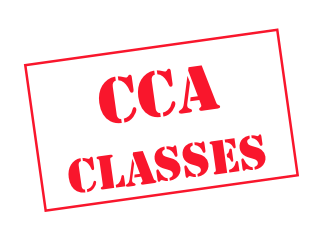 What is Capital Cost Allowance (CCA)?
What is Capital Cost Allowance (CCA)?FAQ About Home Based Business and Taxes
 By taking the time to learn and know the rules YOU can do all the little things needed to LEGALLY reduce your net taxable income.
By taking the time to learn and know the rules YOU can do all the little things needed to LEGALLY reduce your net taxable income.Auto Mileage Reimbursement
As an incorporated business we have chosen to use our personal vehicle for business and charge $.52/km for mileage. Most of our contracts cover travel expense and we bill this mileage to clients.
Does the $.52/km include GST/HST? Can we claim GST/HST tax credits on this expense when paid to us personally?
Auto Mileage Reimbursement
As an incorporated business we have chosen to use our personal vehicle for business and charge $.52/km for mileage. Most of our contracts cover travel expense and we bill this mileage to clients.
Does the $.52/km include GST/HST? Can we claim GST/HST tax credits on this expense when paid to us personally?
Back before I retired, this Bookkeeping-Essentials.com site visitor and I had a few emails back and forth on this. On my recommendation, a GST ruling was requested. This response is information obtained by GST Rulings Vancouver that was kindly shared with me.
Pertinent facts:
- Incorporated GST/HST registrant business will be referred to as "business".
- By contract agreement with GST/HST Registrant "client", all reasonable travel expenses covered for contract work.
- Personal vehicle used by business owner as "individual" for some of this travel.
- Mileage paid to "individual" at CRA published rates is deemed reasonable rates and only for approved business expenses. These payments are not part of personal taxable income.
Therefore:
- As these expenses are not part of the "individual's" taxable income , the "business" can claim ITCs which are built into the reasonable expense.See CRA website reference: G400-3-11 Allowances and Reimbursements (GST 400-3-11):"13. Where a registrant pays a reasonable allowance to an employee or a member of a partnership for the use of a motor vehicle in Canada, and where no amount is included in computing the individual's income for income tax purposes, the registrant is deemed to have paid tax equal to 5/105ths of the amount of the reasonable allowance."
- Since CRA does not care what the "Business" bills the "client" for these expenses, who have agreed basically to cover the expenses, the "business" can bill the "client" at such a rate as to only recover these expenses.So as the reasonable rate set by CRA is $.52/km, the "Business" bills the "client" at $.495/km and collects 5% GST on that invoiced amount, then they are only recovering the $.52/km going to the "individual".
So one of the things that is important to point out here is, if you are unsure how to treat a certain transaction with regards GST/HST when dealing with your home based business and taxes, one option available to you is to call or write and ask for a GST Ruling on your specific circumstances.
Want more information on CRA's tax free mileage rates? Check out my full article on auto allowances.
Employment Taxes
Are business owners subject to CPP?
Employment Taxes
Are business owners subject to CPP?
The answer to this home based business and tax question is yes. CPP premiums for business owners are considered self employment taxes.
Sole proprietors
For self-employed people in Canada, they are responsible for paying both the employer and the employee contributions to Canada Pension Plan (CPP). As they are essentially both the employer and employee of their own business, they're required to make these double contributions.
The contribution rates are set by the government each year. In 2024, the CPP contribution rate is 11.9% of your net self-employment income for the year, after a basic exemption of $3,500.
Both the employer and employee's share of the contribution is tax-deductible. Additionally, half of the total self-employed CPP contribution is eligible for a non-refundable tax credit.
The maximum contribution in 2024 is capped at $7,735. This means that once your income reaches a certain point ($68,500 in 2024), you stop paying CPP contributions for the remainder of the year.
In 2024, the government introduced a second additional CPP contribution, referred to as CPP2, for workers who earn higher wages. CPP2 contributions are made in addition to CPP1. It results in an additional 8% on self-employed worker earnings between $68,500 and $73,200.
If you do have to make CPP contributions, they are calculated on Schedule 8 Contributions on Self-Employment or Other Earnings of your T1 return. This means your self-employment taxes are paid at the same time as you pay your income tax, which is usually by April 30 of the following year. Late or insufficient payments may lead to penalties.
Overall, while it may feel like a heavy burden to bear both shares of the CPP contribution, remember that what you put into the CPP now will determine the benefits you receive later when you decide to retire or if you become disabled. One of the mistakes a self-employed person can make is not saving for retirement.
Owner-Managers (Employee)
Incorporated business owners, or owner-managers, in Canada are considered employees of their corporation. Therefore, they're required to pay both the employer and employee portions of CPP on their salary.
This means that if an owner-manager is receiving a salary from their corporation, CPP deductions would have to be made from this salary - this is the employee portion of the CPP. The corporation would also have to match this CPP deduction - this is the employer portion of the CPP.
Both of these contributions would then be remitted to the Canada Revenue Agency (CRA) each time you file Form PD7A.
The same CPP contribution thresholds and caps that apply to self-employed and regular salaried employees also apply to owner-managers. In 2024, for example, the maximum CPP contribution is capped at $7,735 and applies to earned income over $3,500 up to $68,500.
In 2024, the government introduced a second additional CPP contribution, referred to as CPP2, for workers who earn higher wages. CPP2 contributions are made in addition to CPP1. It results in an additional 8% on owner-manager
earnings between $68,500 and $73,200.
Also similar to other forms of employment, the employer share of these contributions is a deductible expense for the corporation, while the employee share provides a 15% personal tax credit for the individual.
Please remember to consult with a tax specialist or CPA to ensure you follow the current tax laws and regulations in your jurisdiction.
Self-Employed Tax Deductions
Are bookkeeping service fees tax deductible in Canada?
Self-Employed Tax Deductions
Are bookkeeping service fees tax deductible in Canada?
Yes, bookkeeping service fees are tax deductible for a small business in Canada. According to the Canada Revenue Agency (CRA), any "expenses for accounting and income tax preparation services" are fully deductible. This would also include costs associated with bookkeeping for the business management of financial transactions and records.
Here's how the homed-based business and tax deduction is made:
- Sole proprietors deduct on line 8860 Professional Fees on T1 Form T2125 Statement of Business or Professional Activities.
- Corporations report them on Schedule 125 of your T2 return. This schedule carries forward to Schedule 1.
It's always best to consult with a professional tax advisor or directly with the CRA to understand the specifics based on your individual business circumstances.
Sole Proprietor's "Pay Cheques"
Where do you input / report owner's draws on your tax return?
Sole Proprietor's "Pay Cheques"
Where do you input / report owner's draws on your tax return?
As a sole proprietor, your drawings are reported at the bottom of page 4 of Form T2125 Part 9 Details of Equity.
Just a reminder that in Canada, as a sole proprietor, you are not an employee of your business, rather you ARE the business. Thus, draws or money you take out from your business for personal use, are not considered salaries or wages. This is different from corporations or partnerships, where owners can be employees as well.
Income tax for sole proprietorships is calculated based on the net profit of the business, which includes all income and expenses (business-related only). Therefore, the "draws" would not be counted as deductible expenses because they are not related to the costs associated with operating the business.
So, essentially, expenses that are directly related to the earning of business income are deductible, whereas draws, which are more like distributions of profit, are not. They don't decrease the profit of the business, but rather, they are taken out from the profit after all deductible expenses are accounted for. Only business-related expenses are tax-deductible. This is both as per the Canada Revenue Agency (CRA) regulations and standard accounting principles.
You can read about How To Pay Yourself properly to keep your home based business and taxes on the right side of CRA.
Self-Employed Tax Deductions
Is my receipt log book considered as legitimate receipts for my Canadian tax return?
Self-Employed Tax Deductions
Is my receipt log book considered as legitimate receipts for my Canadian tax return?
While a receipt log book can be helpful in tracking expenses for your home-based business, it's important that you also hold on to original receipts for your tax return in Canada. The Canada Revenue Agency may request to see original receipts if your return is reviewed or audited.
It is my understanding that a receipt log book is valid for services where a receipt is not normally issued ... otherwise you need to keep to your original receipts as supporting documentation in the form received (paper or electronic).
If your receipt log book is your only transactional recording system for your business, consider it to be like a bookkeeping ledger which an important part of bookkeeping records. CRA will want to look at it just as they would any bookkeeping ledger.
You may be interested in reading what constitutes a legitimate receipt from CRA's perspective. The article also covers what is NOT a legitimate receipt for tax purposes as well as the use of log books for unvouchered payments.
Information about what records you must keep for the Canada Revenue Agency may also be helpful as you learn more your home based business and taxes.
In summary, a receipt log book is a useful tool for organizing and keeping track of expenses, but it may not be considered as legitimate proof of expenses without accompanying original receipts. CRA does make provision the use of log books for unvouchered payments. Make sure to consult with a tax professional for the best advice tailored to your specific situation.
Business Use of Personal Vehicle
Can I claim auto expenses if I do not have business coverage?
Business Use of Personal Vehicle
Can I claim auto expenses if I do not have business coverage?
I'm going to assume you are self-employed and not an employee.
Yes, you are eligible to claim vehicle expenses on your income tax, even without specific business coverage on your car insurance. As a self-employed individual, if you use your car for both personal and business purposes, you are can only deduct the part of the expenses that you can reasonably attribute to the business use on your income tax return.
The CRA scrutinizes deductions for a home-based business and taxes claimed by self-employed individuals. Particularly in those instances where a personal vehicle is being used for both personal and business purposes, it's important that you keep detailed records of your car usage. As mentioned, only those expenses directly related to the operation of your business are deductible.
Some examples of vehicle expenses you can claim include:
- Fuel (gasoline, propane, oil)
- Maintenance and repairs
- Insurance
- License and registration fees
- Capital Cost Allowance (depreciation)
To claim these expenses you must either keep a detailed auto logbook of all your business-related driving. The Canada Revenue Agency (CRA) suggests noting the date, destination, purpose, and the number of kilometres you drive. You must keep all your original receipts in the format received (paper or electronic).
However, rules around home-based business and taxes can be complex. Therefore, it’s always recommended to consult with a tax professional. They can provide you with advice tailored to your particular situation and ensure your claims comply with CRA requirements.
Personal Risk Alert
Using your personal car for business purposes in Canada can involve several risks if you do not have appropriate supplemental business insurance coverage on your personal car. With only a personal car insurance policy, it is very likely it does not cover you for damages or liability costs incurred while using the vehicle for business activities.
Should you have an accident, and your insurance company determines you were using your vehicle for business purposes, they may decline your claim. This could leave you personally exposed financially to repair or replace your vehicle and cover any liability claims made against you.
Audit Ready
On the tax front, when dealing with home-based businesses, the CRA expects businesses to be fully committed to their operations. "Having one foot in and one foot out" could be viewed unfavourably during an audit. For example, if the CRA determines that you are not honestly reporting your income or expenses, this could result in penalties.
When it comes to a home-based business and taxes, the CRA requires clear demarcation in terms of expenses and usage. Cutting corners in the hope of avoiding business expenses could potentially lead to disallowed expenses after an audit or harsh financial penalties; maybe even damage your career reputation. It's crucial to be thorough, maintain meticulous records, and consult with a tax professional to ensure you're adhering to all regulations and obligations regarding business use of your personal car.
Personally I think it would be a huge mistake to use your personal vehicle for business and not have supplemental business insurance. Find out the CRA wants you to look like a duck, swim like a duck, and quack like a duck. Auditors frown on cherry picking certain aspects of being self-employed while ignoring other aspects. Make sure you "dress" like a business by having a business license, business insurance, a business bank account, and supplemental business insurance on your personal vehicle. Not being "all in" as a self-employed worker can get you into a boatload of trouble if you are ever audited.
Home Office Deductions
I have a home based business but my home has only one phone line. What are the rules for business use of your home phone in Canada? Can I deduct it?
Home Office Deductions
I have a home based business but my home has only one phone line. What are the rules for business use of your home phone in Canada? Can I deduct it?
You can deduct some expenses of your home phone line, if you use it for business, when you don't have a separate business line. Find out more about the restrictions on deducting business use of your home phone line here.
The above link includes information on where to claim the deduction for business use of your home phone on your tax return.
As you will see, learning about your home based business and taxes is ... well taxing!
Home Office Deductions
As a Canadian farmer, what percentage of my telephone and power can I deduct on my tax return?
Home Office Deductions
As a Canadian farmer, what percentage of my telephone and power can I deduct on my tax return?
The CRA Interpretation Bulletin IT-514 Work Space in Home uses farmers (and contractors) as their example. How to calculate your allowable office expense claimable for operating your farming business with your home as your principal place of business is explained. Here is an excerpt:
"The work space in a farmer's home utilized to operate the farming business would normally be the farmer's principal place of business. The room used by the contractor and the farmer's work space could also be used for personal purposes since they need not be used exclusively for the business in order to meet the 1(a) requirement."
See my explanation of how to prorate home office expenses. Use business use - Option 1 for your calculation.
Make sure you read the restrictions on deducting your home phone line before reporting your home based business and taxes.
Business Tax Deductions
Are life insurance payments a tax deduction in Canada?
Business Tax Deductions
Are life insurance payments a tax deduction in Canada?
Life insurance premiums are not a business tax deduction because any funds paid out would be tax free. Learn more about life insurance premiums and how they affect your home base business and taxes.
Business Tax Deductions
Are WCB penalties tax deductible in BC?
Business Tax Deductions
Are WCB penalties tax deductible in BC?
Sorry, no they're not. Learn more about fines and penalties and how they affect your home based business and taxes.
Business Tax Deductions
Are country club dues deductible or not?
Business Tax Deductions
Are country club dues deductible or not?
Sorry, no they're not. Read more about dues here ... but CRA has changed their position on meals at the clubhouse. They are now deductible if you meet certain criteria.
GST/HST
Do I charge GST/HST on the sale of a business asset such as office equipment?
GST/HST
Do I charge GST/HST on the sale of a business asset such as office equipment?
The answer to this home business tax question depends on your GST registration status. The general rule is ...
- if you are a GST/HST registrant, you must charge GST/HST on taxable goods if the goods are sold in the course of your business activities.
- if you are not a GST/HST registrant, you do not charge the GST/HST on the goods sold.
- if you are the owner of a business and the goods you are selling are NOT related to your business activities, you do not charge HST/GST on the sale of goods.
GST/HST
Don't I pay more income tax if I voluntarily register for GST/HST?
GST/HST
Don't I pay more income tax if I voluntarily register for GST/HST?
Yikes. The answer to this question has moved to a new page about considerations for small suppliers before registering for GST/HST.
GST/HST
What organizations are GST exempt?
GST/HST
What organizations are GST exempt?
As of July 1, 2010, the federal government, participating provinces, PEI and Nunavut governments and municipalities pay GST/HST on taxable goods and services. The remaining provinces and territories (non-participating), including their Crown corporations, boards, commission, agencies and departments or ministries, do not pay GST/HST if they provide certification.
Federal and provincial governments ... and public service bodies - PSB (charities, municipal, universities, public colleges, school and hospital authorities, not for profit organizations) have to charge GST/HST on their taxable goods and services. PSBs may qualify for small supplier rules and rebates.
Go to CRA's website for more information and exceptions at A to Z index> GST/HST> G> Governments - Federal, provincial, territorial and municipal
Public Service Organizations
Prior to July 1, 2010 ... this is not my area of expertise as I deal mainly with small business ... so don't take my word on this ... but here is my understanding.
Public service organizations were generally GST exempt which meant you were not be required to charge or be charged GST. This includes government organizations at all levels:
- federal governments
- provincial governments
- territorial governments
- municipal governments
Organizations like CMHC are also GST exempt.
Charities and NPOs
Charities (if not a GST registrant) are not required to collect GST and may claim a 50% GST rebate on eligible purchases by filing form GST66 - Application for GST/HST Public Service Bodies' Rebate and GST Self-Government Refund.
Non-profit organizations must collect GST/HST and are eligible to claim ITCs.
Employee Taxable & Non-Taxable Benefits
Learning The Rules
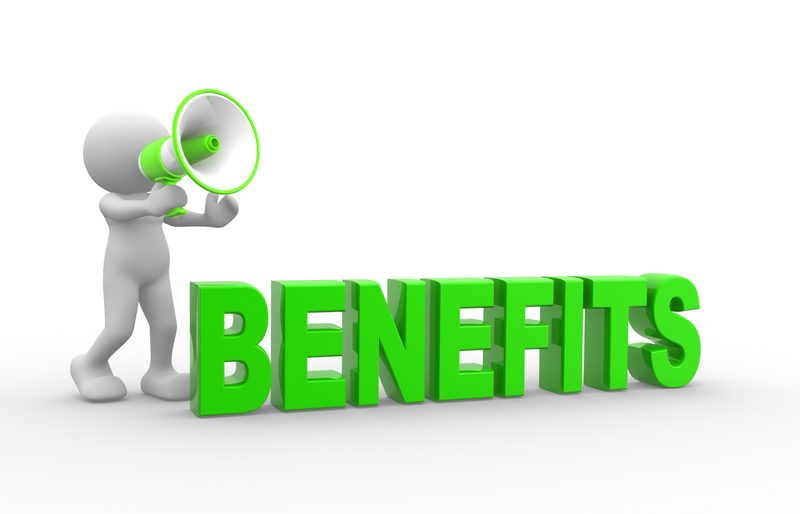 Employee Taxable Benefits
Employee Taxable Benefits